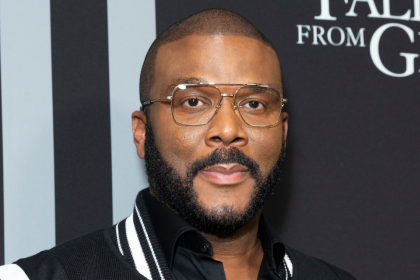Actress reflects on motherhood six years later
The emotional complexities of alternative paths to motherhood
Navigating uncharted waters
Six years after welcoming her daughter Kaavia through surrogacy, Gabrielle Union continues processing the multifaceted emotions that accompanied her journey to motherhood. The acclaimed actress recently shared her ongoing reflections with Marie Claire, delving into the psychological challenges she faced when pregnancy wasn’t possible through conventional means.
Union, who shares parenting responsibilities with husband Dwyane Wade for both Kaavia and his children from previous relationships, approaches discussions about her reproductive experiences with remarkable transparency. Her narrative illuminates the often-overlooked emotional dimensions of surrogacy that extend far beyond the clinical aspects of the process.
The feelings of inadequacy that surfaced throughout her journey represent a common yet underdiscussed aspect of fertility challenges. For many women, the societal expectation to conceive and carry children naturally creates profound psychological pressure when their bodies require alternative approaches.
Confronting perceived failure in a society fixated on natural birth
The weight of expectations
The perception of personal failure emerged as a central theme in Union’s reflections. The inability to carry her own child manifested as a deep sense of shortcoming that was especially difficult to process in the public eye. This sensation of inadequacy stands as a testament to the powerful cultural messaging that often equates womanhood with the ability to bear children.
For Union, witnessing another woman successfully carry her child stirred conflicting emotions—profound gratitude juxtaposed against personal disappointment. Despite these complicated feelings, the actress maintains deep appreciation for the gestational caregiver who helped bring Kaavia into their lives.
The dichotomy between joy for her daughter’s existence and lingering grief over her own reproductive challenges exemplifies the nuanced emotional landscape many parents navigate when pursuing nontraditional paths to parenthood. These complex reactions often remain hidden beneath the surface celebration of successful surrogacy outcomes.
A history marked by reproductive trauma
Persistence through setbacks
Union’s journey toward motherhood involved numerous painful setbacks over several years. In her 2017 memoir, she described the extensive reproductive treatments she underwent and the multiple pregnancy losses she endured—experiences that took substantial physical and emotional tolls.
The actress described years of medical interventions that transformed her relationship with her body, creating a sense of disconnection as pregnancy became increasingly medicalized. This alienation from self represents another seldom-discussed aspect of extended fertility treatments that can impact psychological wellbeing.
Adding complexity to Union’s narrative was her husband’s conception of a child with another woman during a brief separation in 2013. She addressed this painful chapter in her second memoir, highlighting how others’ seemingly effortless conception experiences can intensify personal feelings of reproductive inadequacy.
Finding community through vulnerability
Breaking isolation through shared experience
Shortly after Kaavia’s birth in November 2018, Union leveraged her platform to connect with others facing similar challenges. Through social media, she addressed the isolation, depression, and self-doubt that often accompany fertility struggles, extending solidarity to those walking similar paths.
Her willingness to acknowledge the complex emotional landscape of surrogacy helps diminish the stigma surrounding alternative reproductive methods. By validating the conflicting feelings that can accompany these experiences, Union creates space for others to process their own emotions without judgment.
This openness serves multiple purposes—providing validation for those with similar experiences, educating the broader public about fertility challenges, and creating community among those who might otherwise feel isolated in their struggles. The actress’s continuous reflection demonstrates that processing reproductive trauma often extends well beyond the birth of a child.
Redefining success in motherhood
Embracing new narratives
Union‘s evolution throughout her parenthood journey illustrates how definitions of motherhood can expand beyond traditional boundaries. Her experiences challenge conventional narratives that prioritize biological connections and gestational experiences above other forms of parent-child bonding.
Though she acknowledges the lingering emotional impact of her fertility challenges, Union consistently emphasizes the profound joy and fulfillment Kaavia brings to her life. This perspective offers an important counterbalance to the narrative of loss that often dominates discussions of alternative paths to parenthood.
Her approach to motherhood demonstrates how parents can simultaneously honor their reproductive grief while fully embracing the children who enter their lives through various means. This nuanced perspective creates space for the full spectrum of emotions that accompany nontraditional paths to family formation.
The broader impact of celebrity transparency
The significance of Union’s willingness to discuss her experiences extends beyond personal catharsis. By using her platform to address reproductive challenges, she contributes to a growing movement of public figures helping destigmatize infertility and alternative family-building methods.
This transparency helps counter harmful societal messaging that often frames fertility challenges as personal failings rather than medical realities affecting millions. For the estimated one in eight couples experiencing infertility, such high-profile discussions can provide crucial validation and decrease isolation.
Union’s ongoing reflections highlight an important reality—that processing reproductive trauma often continues long after a child joins the family. This perspective challenges oversimplified narratives suggesting that successful family formation automatically resolves the emotional impact of fertility struggles.
Moving forward with authenticity
Gabrielle Union’s journey through surrogacy and motherhood stands as a powerful testament to resilience in the face of reproductive challenges. Her willingness to publicly process the complex emotions surrounding her experience creates important space for nuanced discussions about alternative paths to parenthood.
As Union continues navigating motherhood, her story remains a valuable resource for others facing similar obstacles. Her candid reflections demonstrate how parents can honor their reproductive journeys—including the grief, disappointment, and trauma—while fully embracing the joy their children bring into their lives.
The actress’s experience illuminates how restrictive cultural narratives around motherhood affect those pursuing nontraditional paths to parenthood. By sharing her story, Union helps expand societal understanding of what constitutes meaningful family formation and validates the diverse emotional responses that accompany these journeys.















